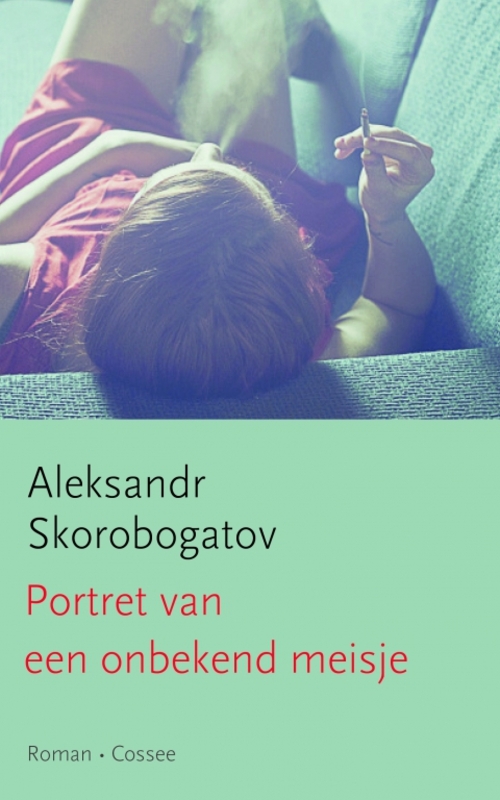
Portrait of an Unknown Girl is a captivating and tragic story about a secret teenage love, unfolding against the background of oppressed Belarus in the final decades of Soviet rule. Evoking the provocative yet sophisticated sensuality of Nabokov’s iconic Lolita along with the refined nostalgia of The Life of Arseniev by Ivan Bunin, Portrait of an Unknown Girl is a powerful and beautiful coming-of-age novel.
Driven by what they see as their first love, which too quickly takes complete control over their lives, Sasha and his girlfriend, Katia, find themselves challenging the many prejudices that rule over their sleepy and callous provincial town at the edge of the Soviet empire. Fighting for love soon turns into a fight against reality itself - a difficult fix, especially if you’re just a teen.
When Katia finds out she is pregnant, she tries to conceal her pregnancy and convince herself and Sasha that everything will be fine, just as long as nobody knows. But her secret is discovered. Furtively, in order to ‘cover the shame,’ she’s taken to hospital, where a corrupt doctor aborts her five-month-old unborn son, the child of a child.
The appearance of another girl, Nika, not only dramatically changes Sasha’s perception of himself and of the true essence of his relationship to Katia; for the first time in his life, Sasha is also painfully confronted with his own shortcomings. He is willing to face and battle them - but is it already too late for him to recognize and save the life of his one true love?
Portrait of an Unknown Girl is not only a powerful story of the beauty and the tragedy of first love, but also an uncompromising portrait of an inhumane epoch, and an oppressive regime that breaks people, punishes innocence and integrity, and ruins lives.
‘Portrait of an Unknown Girl seems to continue seamlessly a Russian literary tradition in which great feelings are allowed to roam freely. Think of Turgenev’s First Love or a story by Ivan Bunin. Skorobogatov evokes such feelings in an exceptional fashion. His novel is witty where it needs to be, sensual where it wants to be, and subtle about the “precarious, sweet mixture of feelings that you want to rend asunder, but want to sustain even more.” From the first page you’re aware that a refined stylist is wielding his pen. Quickly, you find yourself immersed knee-deep in this novel, which is full of melancholic, poised images and passionate sentences. Along the way, Skorobogatov skillfully conjures up the atmosphere of the crumbling Soviet empire in a far-off corner of Belarus ruled by alcoholism, boredom and petty fights. Skorobogatov’s richly varied prose adds a gentle glow to the whole. Portrait of an Unknown Girl is a real discovery.’ – De Morgen ****
‘Aleksandr Skorobogatov has written a novel about the tragic first love between two teenagers in the Soviet Union of the seventies. He describes the thrill of that first time in a blistering way. Your first great love never leaves you. Russian writers, masters of melancholy, often know how to beautifully give voice to it. Aleksandr Skorobogatov is a contemporary chronicler of that great feeling in his fifth novel Portrait of an Unknown Girl. Skorobogatov describes it in long meandering sentences, a stylistic hallmark of his earlier books as well. For everything in this beautiful novel revolves around being in love, around physical desire, around enjoying each other’s beauty, around the first time they have sex when the parents aren’t at home. And so richly is it described that Skorobogatov carries you away and enchants you with his beautiful language.’ – NRC Handelsblad ****
‘Aleksandr Skorobogatov is in every respect an heir to the Russian storytelling tradition. What writers like Dostoyevsky, Chekhov, and Gogol did over a century ago, he now does in a modern guise: giving shape to the Russian soul in lyrical language, in a story about love and revenge, opportunism and honor. The play with language takes primacy for Skorobogatov, and it's a game he has mastered to perfection.’ – Noordhollands Dagblad
‘An epic composed with such subtlety that it deserves to be called a work of genius.’ – Guus Bauer, Literatuurplein.nl
‘Skorobogatov turns out to be our own Belgian-Russian master storyteller.’ – Feeling Magazine ****
‘A book that captivated me from the beginning. I firmly believe that in Skorobogatov we encounter a great writer.’ – Merwede Radio
Praise for Aleksandr Skorobogatov:
‘Skorobogatov is one of the most interesting authors of post-communist Russia.’ – De Standaard
‘Every now and then, albeit very rarely indeed, a novel or story by a totally unknown author gives a glimpse of unexpected genius. The surprise is so great, in fact, that you are compelled to read the work a second time, but now with the clear insight of the initiate.’ – Gazet van Antwerpen
‘A great Russian novel where the hero is a husband tortured by the demons of jealousy. With this beautiful tragic novel, Skorobogatov has carved a place for himself in the great Russian tradition.’ – Le Figaro
‘Skorobogatov is being praised in Moscow and in the West as an absolute discovery.’ – De Morgen
‘It has been many years since such an original work found its way from Russia to this country. An impressive debut that whets the reader’s appetite for more to come.’ – NRC Handelsblad